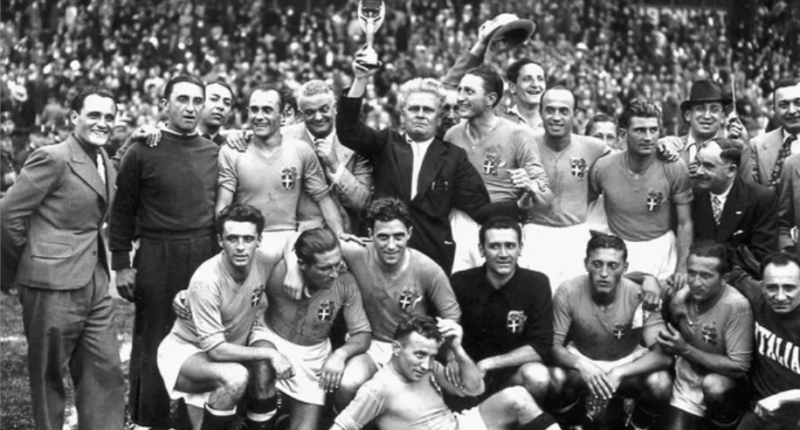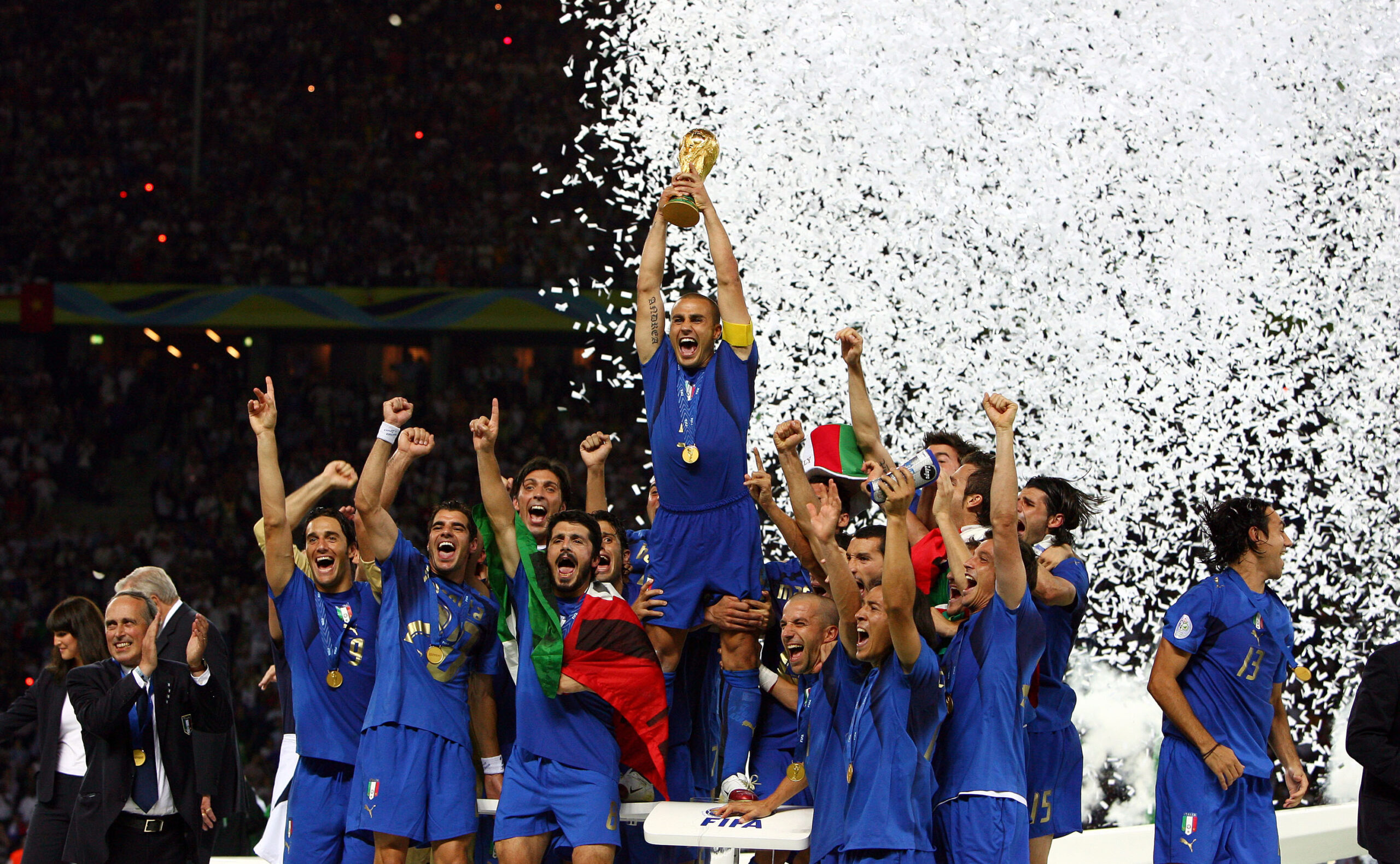The third World Cup, known as the 1938 FIFA World Cup, took place in France from June 4 to June 19, 1938. France won the bid for the event after defeating Germany, Italy, and Argentina. There were 15 international teams competing in the tournament, with Italy the defending champion.
Background
As Nazi Germany started to expand its territory and war seemed imminent, there were increasing tensions in Europe during the 1938 World Cup. Political tensions also characterized the tournament, with a number of countries pulling out or refusing to play because of differences with the host government or other competing nations.
Participants
The 15 teams that participated in the 1938 World Cup were:
Argentina
Belgium
Brazil
Cuba
Czechoslovakia
Dutch East Indies
France (host)
Germany
Hungary
Italy (defending champions)
Norway
Poland
Romania
Switzerland
Sweden
Format
Four groups of the 15 competing teams were formed, with the group winners moving on to the knockout round. Four quarterfinal games, two semifinal contests, a third-place playoff, and the championship game made up the knockout stage.
Matches
The tournament included a number of noteworthy contests, including Italy’s 2-1 semifinal triumph over Brazil, which was clouded by disputed refereeing calls. It was a fiercely contested final between Italy and Hungary, but Italy ultimately prevailed 4-2 to retain their title.
Goalscorer
The competition produced a variety of notable goal scorers, notably György Sárosi of Hungary and Leônidas da Silva of Brazil, who each scored six goals. Silvio Piola of Italy led all scorers with five goals.
Winners
Italy prevailed in the 1938 FIFA World Cup. In the championship game, they defeated Hungary 4-2 to win the World Cup for the second time in a row. There were 15 teams competing in the competition, which was hosted in France. Before the World Cup was postponed due to World War II, this was the final competition.
Legacy
There are many reasons why the 1938 World Cup is remembered. It was the first World Cup to adopt the knockout format, which has since become the norm for competitions after it. It was also the final World Cup to be played before World War II broke out, which forced the cancellation of the 1942 and 1946 competitions.
Controversy
The 1938 World Cup was highlighted by a number of disputes, including Austria’s departure because of Nazi Germany’s annexation of the country. Political tensions also characterised the tournament, with several countries declining to take part because of differences with the host government or other competing nations. Brazil felt that they had been treated unfairly by the match officials during the semifinal between Italy and Brazil because of the contentious refereeing decisions that were made. Some matches also allegedly had match-fixing going on, however this was never proven.





